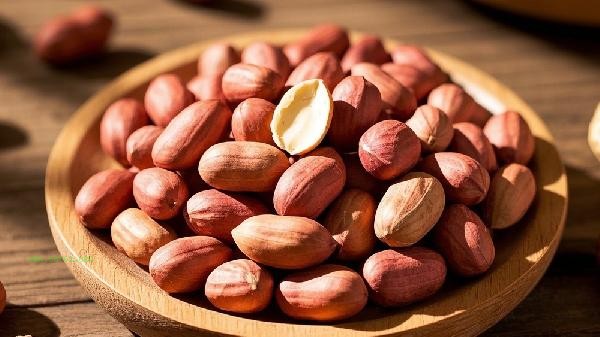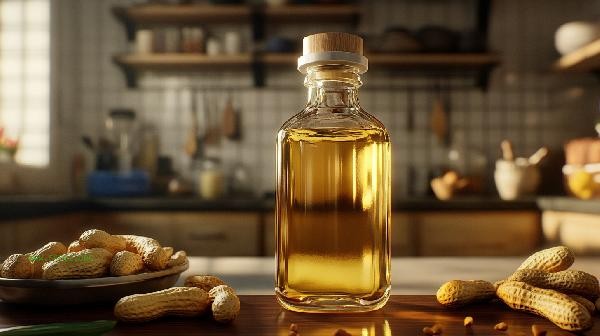The foam of peanut oil can be eliminated by controlling oil temperature, filtering impurities, adding food materials or using defoamers. Foam production is mainly related to water, impurities or high-temperature oxidation in oil. Reasonable operation can effectively reduce foam problems during cooking.

High oil temperature is one of the main reasons for foam. When peanut oil is heated to the smoke point, triglycerides in the oil will decompose to produce free fatty acids and glycerol, which are easy to form foam. Suggest heating over medium low heat to avoid exceeding 180 degrees. Before use, pour the oil into a drying pot and preheat it at low temperature. Adjust the temperature to the desired level after the small bubbles disappear. When frying food, add small amounts in batches to prevent the sudden evaporation of moisture from the ingredients, which can cause the oil surface to churn violently.
The unrefined peanut oil contains natural emulsifiers such as phospholipid and protein, which will gather at the oil-water interface to form a stable foam when heated. Choosing first grade refined peanut oil can reduce such problems. If self extracting oil is used, the oil can be first left to settle and then the upper layer of clear oil can be taken, or filtered with gauze to remove particulate matter. Place the oil in a dry environment before cooking to avoid absorbing moisture from the air. Add a little ginger slices or salt, and the active ingredients can destroy the foam membrane structure.

If the foam of peanut oil stored for a long time increases, it indicates that there may be oxidative deterioration. It is recommended to store edible oil in a dark sealed container and use it within three months after opening. For the generated foam, it can be temporarily cooled off from the fire, and gently skim the surface foam with a colander. Professional kitchens can be equipped with food grade defoamers, mainly composed of dimethyl silicone oil, which can quickly reduce surface tension. When used at home, starch water or Baijiu can be used instead, and a small amount of it can be dropped into the oil pan, but it should be noted that the food flavor may be affected after adding.

Peanut oil should be stored in a cool place for daily use, avoiding direct sunlight that can cause the oil to spoil. Regularly clean oil pots and pans to prevent food residue from accelerating oil degradation. Choose dark glass or stainless steel containers to reduce the catalytic oxidation of metal ions. When cooking animal based ingredients, blanch them to remove blood foam, and drain the surface moisture of plant-based ingredients. If foam is accompanied by odor or color deepening, it is recommended to stop using this batch of edible oil. Reasonably control the amount of oil used in a single frying, as repeatedly frying oil can easily produce harmful substances. It is recommended to replace the oil with new oil every 2-3 times for home cooking.









Comments (0)
Leave a Comment
No comments yet
Be the first to share your thoughts!